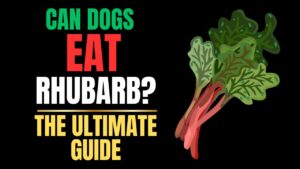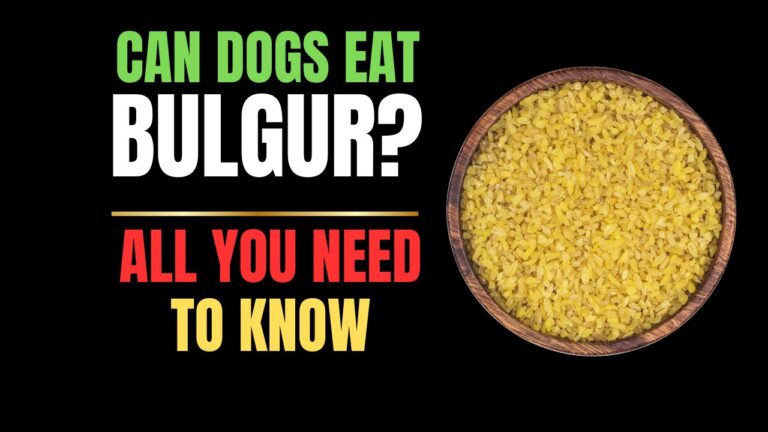
Can Dogs Eat Peaches?
As summer approaches and peach season arrives, many dog owners wonder if this sweet, juicy fruit is safe to share with their furry companions. The answer is yes — with important caveats. When prepared correctly and served in moderation, peaches can be a healthy and delicious treat for most dogs.
Peaches offer several nutritional benefits for dogs, including vitamins, fiber, and antioxidants. However, certain parts of the fruit pose serious health risks that every dog owner should understand before offering this summer favorite to their pet.
This comprehensive guide covers everything you need to know about feeding peaches to your dog safely — from proper preparation techniques and portion sizes to potential risks and warning signs. Whether you're considering sharing a slice of your peach cobbler or looking for healthy treat alternatives, this guide will provide all the information you need to make informed decisions.
Introduction to Peaches for Dogs
Peaches can be a safe and nutritious treat for dogs when prepared properly. The flesh of ripe peaches provides vitamins, minerals, and hydration, but certain parts of the fruit must be avoided to ensure your dog's safety.
Quick Safety Overview
While the flesh of peaches is safe for dogs, the pit, stems, and leaves contain cyanide compounds that can be toxic. Additionally, the pit poses a serious choking hazard and risk of intestinal blockage. Canned peaches with syrup or artificial sweeteners should always be avoided due to their high sugar content and potential toxicity from sweeteners like xylitol.
The Short Answer
Yes, dogs can eat peaches in moderation. The fresh flesh of ripe peaches is safe, nutritious, and generally well-tolerated by most dogs. However, proper preparation is essential to remove all hazardous parts before serving.
| Safety Level | Recommended Preparation | Key Considerations |
|---|---|---|
| Safe (with precautions) | Fresh, pitted, peeled slices | Remove pit, stem, and leaves completely |
| Moderation Essential | Small portions based on dog size | Follow the 10% treat rule |
| Gradual Introduction | Start with tiny amounts | Monitor for digestive upset |
Nutritional Benefits of Peaches for Dogs
When served properly, peaches offer several nutritional advantages that can benefit your dog's health.
Vitamin Rich
A, C, E & K
Peaches are packed with essential vitamins that support immune function, vision, skin health, and blood clotting.
Immune system support
Dietary Fiber
Digestive Health
The fiber in peaches aids digestion, helps maintain healthy bowel movements, and can contribute to weight management.
Promotes gut health
High Water Content
88% Water
Peaches' high water content helps keep dogs hydrated, especially during hot summer months.
Natural hydration
Nutritional Breakdown
Veterinary Perspective
According to veterinary nutritionists, the antioxidants in peaches (particularly vitamin C and A) can help combat oxidative stress and support overall health. The fiber content aids digestion and can help regulate bowel movements. However, the natural sugar content means peaches should be treated as an occasional snack rather than a dietary staple, especially for dogs with weight issues or diabetes. The benefits are best realized when peaches are fed in appropriate portions as part of a balanced diet.
Potential Risks and Dangers
While peach flesh is safe for dogs, several parts of the fruit pose serious health risks that every owner should understand.
Peach Pits
Extreme Hazard
Pits contain cyanogenic glycosides that release cyanide when digested. They also pose choking and intestinal blockage risks.
Always remove completely
Sugar Content
Moderate Concern
Natural sugars can cause weight gain, dental issues, and blood sugar spikes in susceptible dogs.
Feed in moderation
Pesticide Residue
Potential Risk
Conventionally grown peaches often contain pesticide residues that can be harmful to dogs.
Wash thoroughly or choose organic
Cyanide Poisoning Risk
Peach pits, stems, and leaves contain amygdalin, a compound that breaks down into hydrogen cyanide when ingested. While a dog would need to consume multiple pits to experience severe poisoning, even small amounts can cause symptoms.
| Symptom | Timeframe | Severity |
|---|---|---|
| Dilated pupils | 15-30 minutes | Mild to moderate |
| Difficulty breathing | 30-60 minutes | Moderate to severe |
| Bright red gums | 30-60 minutes | Moderate |
| Shock or collapse | 1-2 hours | Severe (emergency) |
Intestinal Blockage Danger
Peach pits are not only toxic but also pose a serious physical danger. If swallowed, the hard pit can cause intestinal blockage that may require emergency surgery. Symptoms of intestinal blockage include vomiting, loss of appetite, abdominal pain, lethargy, and inability to defecate. If you suspect your dog has swallowed a peach pit, contact your veterinarian immediately — do not wait for symptoms to appear.
Safe Peach Preparation for Dogs
Proper preparation is essential to ensure peaches are safe for your dog to consume. Follow these steps carefully.
Fresh Peaches
Best Option
Choose ripe, fresh peaches. Wash thoroughly, remove pit, stem, and leaves, then slice into appropriate-sized pieces.
Remove all hazardous parts
Frozen Treats
Summer Favorite
Slice prepared peaches and freeze for a cool summer snack. Great for teething puppies and hot days.
Monitor chewing
Cooked Peaches
Optional Preparation
Lightly steaming or baking peaches can make them easier to digest for some dogs. Never add sugar or spices.
Plain preparation only
Step-by-Step Preparation Guide
- Select ripe peaches: Choose fruits that are firm but yield slightly to pressure
- Wash thoroughly: Use water and a vegetable brush to remove pesticide residue
- Remove the pit: Cut around the peach and twist to separate halves, then remove pit
- Discard stems and leaves: Ensure no plant material remains
- Consider peeling: The skin is safe but may be difficult for some dogs to digest
- Slice appropriately: Cut into bite-sized pieces based on your dog's size
- Serve immediately or store properly in refrigerator
To Peel or Not to Peel?
While peach skin is not toxic to dogs and contains additional nutrients and fiber, some dogs may have difficulty digesting it. The skin can also harbor more pesticide residue than the flesh. For dogs with sensitive stomachs or those trying peaches for the first time, peeling may be advisable. If you choose to leave the skin on, ensure the peach is thoroughly washed, preferably with a fruit and vegetable wash. Organic peaches are ideal if feeding with skin intact.
Portion Guidelines for Dogs
Even with proper preparation, portion control is essential when feeding peaches to your dog to prevent digestive issues and maintain nutritional balance.
Portion Size by Dog Weight
| Dog Weight | Recommended Portion | Frequency |
|---|---|---|
| 5-10 lbs | 1-2 small slices | 1-2 times per week |
| 11-25 lbs | 2-4 small slices | 2 times per week |
| 26-50 lbs | 1/4 peach | 2-3 times per week |
| 51-100 lbs | 1/2 peach | 2-3 times per week |
| 100+ lbs | 1/2 to 1 peach | 2 times per week |
The 10% Treat Rule Explained
Veterinarians recommend that treats should make up no more than 10% of your dog's total daily caloric intake. The remaining 90% should come from their complete and balanced regular dog food. Peaches, like other treats, should be factored into this 10% allowance.
Special Considerations
Puppies can have tiny amounts of peach once they're eating solid food regularly, but introduce it gradually. Senior dogs may benefit from the soft texture and fiber content, but those with dental issues or diabetes need special consideration. For diabetic dogs, consult your veterinarian before introducing any fruit into their diet due to the natural sugar content. Dogs with kidney issues should also avoid high-potassium foods like peaches. Always monitor your dog after introducing any new food.
Calculating Your Dog's Treat Allowance
To determine how much peach fits within your dog's diet:
- Check your dog food packaging for daily feeding guidelines based on weight
- Calculate 10% of those daily calories - this is your treat allowance
- Remember that a medium peach contains about 60 calories
- Adjust other treats accordingly when offering peaches
Serving Methods and Ideas
There are several safe and enjoyable ways to serve peaches to your dog, from simple fresh slices to creative frozen treats.
Fresh Peach Slices
The simplest method is to serve fresh, ripe peach slices. Ensure all pits, stems, and leaves are completely removed, and cut the fruit into bite-sized pieces appropriate for your dog's size. This method preserves all the natural nutrients and provides a refreshing snack.
Frozen Peach Treats
Frozen peach slices or peach puree cubes make excellent warm-weather treats. Simply prepare peach slices as described above and freeze on a parchment-lined baking sheet. For peach cubes, puree prepared peaches and freeze in ice cube trays. These are particularly helpful for teething puppies.
Peach Food Topper
Mash or puree a small amount of prepared peach and mix it with your dog's regular food. This can encourage picky eaters and add variety to their diet. Start with just a teaspoon for medium dogs and adjust according to size.
Stuffed Toy Treats
For mental stimulation, stuff a Kong or similar toy with a mixture of peach puree and your dog's regular food, then freeze. This provides extended entertainment and can help with anxiety or boredom.
What to Avoid
Never feed your dog canned peaches in syrup, peach pie, peach cobbler, or any peach products containing added sugar, artificial sweeteners (especially xylitol, which is toxic to dogs), spices, or other ingredients. Avoid peach yogurt, ice cream, or other human foods containing peaches, as these often include ingredients that are harmful to dogs. Stick to plain, fresh peaches prepared specifically for your dog.
Dog-Friendly Peach Recipes
These simple, dog-safe recipes incorporate peaches in creative ways that your pup will love.
Peachy Pupsicles
This refreshing frozen treat is perfect for hot summer days and provides hydration along with nutrition.
- Ingredients: 1 ripe peach (pitted and peeled), 1/2 cup plain yogurt, 1/4 cup water
- Instructions: Blend all ingredients until smooth. Pour into ice cube trays or silicone molds. Freeze for at least 4 hours until solid.
- Serving size: 1-2 cubes depending on dog size
Peach & Oat Dog Biscuits
These homemade biscuits provide the benefits of peaches along with fiber from oats.
- Ingredients: 1 cup oat flour, 1/2 cup pureed peach, 1 egg, 1 tablespoon coconut oil
- Instructions: Mix ingredients to form a dough. Roll out and cut into shapes. Bake at 350°F for 20-25 minutes until firm.
- Storage: Keep in airtight container for up to one week
Peach & Chicken Frozen Kongs
A protein-packed frozen treat that provides mental stimulation and nutrition.
- Ingredients: 1/4 cup finely chopped peach, 1/4 cup cooked chicken (shredded), 2 tablespoons plain yogurt
- Instructions: Mix ingredients and stuff into Kong toys. Freeze for several hours until solid.
- Note: Great for keeping dogs occupied and cool in warm weather
Recipe Safety Tips
When preparing homemade dog treats, always use dog-safe ingredients. Avoid anything containing xylitol, chocolate, grapes, raisins, onions, garlic, or excessive salt. While the recipes above are generally safe, remember that each dog is unique. Introduce new foods gradually and watch for any signs of digestive upset or allergic reactions. Consult your veterinarian if you have concerns about specific ingredients for your dog, especially if they have existing health conditions.
Warning Signs and Emergency Response
While properly prepared peaches are generally safe, it's important to recognize potential adverse reactions and know when to seek veterinary care.
Signs of Peach-Related Issues
| Symptom | Possible Cause | Action to Take |
|---|---|---|
| Vomiting or diarrhea | Too much peach, sensitivity, or pit ingestion | Discontinue peaches, offer bland diet, consult vet if severe |
| Lethargy or weakness | Possible digestive upset or more serious issue | Monitor closely, contact vet if persists beyond 24 hours |
| Difficulty breathing | Choking on pit or allergic reaction | Emergency veterinary care needed immediately |
| Pawing at mouth | Possible choking or oral irritation | Check mouth for obstructions, contact vet if continues |
| Loss of appetite | Digestive upset or more serious blockage | Withhold food for 12 hours, consult vet if no improvement |
Cyanide Poisoning Symptoms
If your dog has consumed peach pits, stems, or leaves, watch for these signs of cyanide poisoning:
- Dilated pupils
- Bright red gums and tongue
- Difficulty breathing or panting
- Shock or collapse
- Seizures
Emergency Response
If you suspect your dog has consumed peach pits, stems, leaves, or is showing signs of cyanide poisoning, contact your veterinarian or emergency animal hospital immediately. Do not induce vomiting unless directed by a professional, as this can sometimes worsen the situation. If possible, bring a sample of what your dog consumed to help with diagnosis and treatment. Time is critical in cases of potential poisoning, so seek professional help without delay.
Peach Alternatives for Dogs
If your dog doesn't tolerate peaches well or you're looking for variety, several other fruits make safe, healthy alternatives.
Safe Fruit Alternatives
| Fruit | Benefits | Preparation Notes |
|---|---|---|
| Apples | High fiber, vitamin C | Remove seeds and core, slice |
| Blueberries | Antioxidants, low calorie | Wash, serve fresh or frozen |
| Watermelon | High water content, vitamins A&C | Remove rind and seeds, cut pieces |
| Bananas | Potassium, easy to digest | Peel, slice, feed in moderation |
| Strawberries | Vitamin C, antioxidants | Remove stems, slice if large |
Fruits to Avoid
Some fruits are toxic to dogs and should always be avoided:
- Grapes and raisins: Can cause kidney failure
- Cherries: Pits contain cyanide
- Avocado: Contains persin, toxic to dogs
- Citrus fruits: Can cause stomach upset in large quantities
- Unripe tomatoes: Contain solanine, toxic to dogs
Introducing New Fruits
When introducing any new fruit to your dog's diet, start with very small amounts to ensure they tolerate it well. Watch for any signs of digestive upset or allergic reactions. Even with safe fruits, moderation is key — treats should never make up more than 10% of your dog's total diet. The majority of their nutrition should come from a complete and balanced commercial dog food formulated for their specific life stage and health needs.
Frequently Asked Questions
No, dogs should not eat canned peaches. Canned peaches typically contain high amounts of added sugar or syrup, which can lead to obesity, dental issues, and digestive upset. Some canned fruits may also contain artificial sweeteners like xylitol, which is extremely toxic to dogs. Always opt for fresh, properly prepared peaches instead of canned varieties.
If your dog has consumed a peach pit, contact your veterinarian immediately. Do not wait for symptoms to appear. The pit poses both a choking hazard and risk of intestinal blockage, in addition to containing cyanide compounds. Your veterinarian may recommend monitoring, inducing vomiting, or in some cases, diagnostic imaging to check for blockages. Time is critical, so seek professional advice without delay.
Yes, peach trees can be dangerous to dogs if they consume the leaves, stems, or fallen fruit pits. These parts contain higher concentrations of cyanogenic glycosides than the fruit flesh. If you have a peach tree in your yard, regularly clean up fallen fruit and pits, and monitor your dog when they're outside. Consider fencing off the area around the tree if your dog shows interest in eating these parts.
Puppies can have tiny amounts of properly prepared peach once they are regularly eating solid food, typically around 8 weeks of age. However, introduce it gradually and in very small quantities to ensure they tolerate it well. Puppies have sensitive digestive systems, so watch for any signs of upset. The soft texture of ripe peach can be good for puppies, but remember that their nutritional needs are different from adult dogs, so treats should be an even smaller percentage of their overall diet.
Fresh peaches should be stored at room temperature until ripe, then refrigerated where they will stay fresh for 3-5 days. Once cut, store peach pieces in an airtight container in the refrigerator and use within 2-3 days. You can also freeze peach slices for longer storage (up to 6 months). When freezing, spread pieces in a single layer on a baking sheet until solid, then transfer to a freezer bag to prevent sticking.
Dogs with diabetes, pancreatitis, or those prone to obesity should have peaches only in very limited quantities or avoid them altogether due to the sugar content. Dogs with known food allergies or sensitive stomachs should be introduced to peaches cautiously. Dogs that tend to gulp their food without chewing properly may be at higher risk of choking, so extra caution should be taken with portion sizes. Always consult with your veterinarian before introducing new foods if your dog has existing health conditions.
It's best to avoid commercially dried peaches for dogs, as they often contain added sugars or preservatives that aren't healthy. The drying process also concentrates the natural sugars, making them less suitable for dogs. If you want to offer dried peaches, you can make your own by dehydrating fresh peach slices without any additives. However, even homemade dried peaches should be given sparingly due to their concentrated sugar content.
Conclusion: Final Verdict on Peaches for Dogs
Peaches can be a safe, healthy, and enjoyable treat for most dogs when prepared properly and served in moderation. The fresh flesh of ripe peaches provides vitamins, fiber, and hydration that can benefit your dog's health. However, the potential risks associated with peach pits, stems, and leaves cannot be overstated.
Remember the critical safety rules: always remove the pit, stem, and leaves completely; wash peaches thoroughly to remove pesticide residue; introduce gradually to ensure tolerance; and follow appropriate portion sizes based on your dog's weight. While peaches are generally safe for healthy dogs, they're not appropriate for all dogs — those with diabetes, pancreatitis, or weight issues may need to avoid them or have strict limitations.
When in doubt, consult with your veterinarian about incorporating new foods into your dog's diet. With proper preparation and portion control, peaches can be an occasional tasty treat that provides both nutrition and enjoyment for your canine companion.
We'd love to hear about your experiences! Share stories or photos of your dog enjoying their peach treats in the comments below or tag us on social media.
In the Spotlight
About the Author
Dan Su
Author
Dr. Dan Su, Board-Certified Veterinary Nutritionist® — Expert in pet nutrition dedicated to improving animal health through evidence-based care. Based in Irvine, California. Alum of Western University of Health Sciences.











